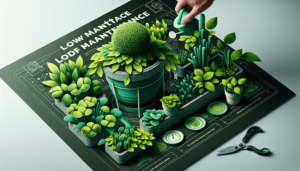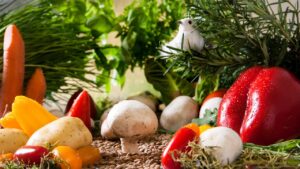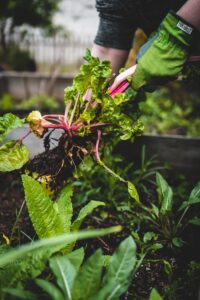If you’re an avid gardener or want to enhance your green thumb skills, then tissue culture propagation is a technique you want to explore. This innovative method of plant propagation involves growing plant tissue in a controlled laboratory environment, where every element is carefully measured and regulated. The benefits of tissue culture propagation in gardening are numerous, from producing high-quality, disease-free plants to preserving rare and endangered species. This article will delve into tissue culture propagation and explore how it can revolutionize your gardening experience.
What is Tissue Culture Propagation?
Tissue culture propagation, also known as micropropagation, is a technique for propagating plants in a controlled laboratory setting. It involves growing plant tissues or cells in an artificial nutrient medium under sterile conditions. This method allows for the rapid and efficient production of large numbers of identical plants, also known as clones, with desirable traits.
Definition
Tissue culture propagation is growing plants from small parts, such as meristematic cells or explants, in a controlled laboratory environment. These plant parts are carefully selected and placed in a culture medium containing essential nutrients, growth regulators, and hormones. Healthy plantlets can be obtained through meticulous maintenance and manipulation of growing conditions, such as light, temperature, and pH.
Process
The tissue culture propagation process typically begins with selecting suitable plant material, such as young shoots or buds, collected from healthy plants. These plant parts are then sterilized using a series of steps, including washing, surface sterilization with disinfectants, and rinsing with sterile water. The sterile explants are then placed onto a culture medium where they can grow and multiply.
The culture medium, also known as agar, is composed of a mixture of nutrients, vitamins, and plant hormones that support the growth and development of the plant cells. It provides the necessary carbohydrates, amino acids, and minerals for the plants to thrive. In addition, specific growth regulators and hormones, such as auxins and cytokinins, are added to control the growth and differentiation of the plant cells.
The explants are incubated in a growth chamber under controlled environmental conditions, including light intensity, duration, quality, temperature, and humidity. Regular monitoring and care ensure the optimal growth of the plant tissues. Over time, the explants develop into healthy plantlets, which can be transferred to a soil or hydroponic system for further growth and development.
Importance of Sterility
Sterility is a crucial aspect of tissue culture propagation. The entire process takes place under strict aseptic conditions to prevent contamination by bacteria, fungi, or other microorganisms that could compromise the growth of the plant cells. A sterile environment is created by using autoclaved equipment, wearing protective clothing, and working in laminar flow hoods.
Maintaining sterility is essential because any contamination can lead to the growth of unwanted organisms, resulting in the death or malformation of the plant cells. Contaminated cultures can also lead to the spread of diseases and negatively impact the quality of the propagated plants. Therefore, sterile techniques are implemented to ensure the success and efficiency of tissue culture propagation.
Advantages of Tissue Culture Propagation in Gardening
Tissue culture propagation offers numerous advantages in the field of gardening. Its applications span from small-scale home gardening to large-scale commercial production. By harnessing the power of tissue culture techniques, gardeners and horticulturists can enjoy the following benefits:
1. Mass Production
By utilizing tissue culture propagation, gardeners can achieve high levels of efficiency and mass production of plants.
Increased Efficiency
The tissue culture process allows for the production of large quantities of plantlets within a relatively shorter timeframe than traditional propagation methods. This efficient production enables gardeners to meet the demands of a growing market, whether for commercial purposes or personal enjoyment.
Cost-Effective
Mass production through tissue culture is not only efficient but also cost-effective. Once the initial setup costs are covered, the production costs per plantlet are significantly reduced. This makes tissue culture propagation an economically viable option for commercial growers and small-scale gardeners alike.
Production of Uniform Plants
Tissue culture propagation ensures the production of genetically identical plants, also known as clones. This uniformity is beneficial for commercial growers who require consistency in their crops. It also allows gardeners to select and propagate plants with desirable traits, such as increased flower size, disease resistance, or specific growth habits.
Meeting High Demand
As the demand for plants rises, tissue culture propagation offers a solution to meet this increasing need. With the ability to produce large quantities of plants in a controlled environment, tissue culture propagation allows gardeners to satisfy consumer demands for common and rare plant varieties.
2. Rapid Cloning
Tissue culture propagation offers the advantage of rapid cloning, allowing for the speedy development of plants.
Quick Plant Development
Through tissue culture propagation, plantlets can be produced within weeks or months, depending on the plant species. This expedited growth enables gardeners to establish a garden or sell plants much faster than traditional propagation methods, which often require more extended periods for seeds to germinate or cuttings to root.
Preservation of Rare or Endangered Species
Tissue culture propagation provides an effective means of preserving and propagating rare or endangered plant species. By taking small tissue samples from these plants and initiating tissue culture, gardeners can clone and preserve these unique species, reducing the risk of extinction and ensuring their long-term survival.
Enhanced Plant Traits
Tissue culture propagation also allows for manipulating plant traits to enhance desirable characteristics. Through tissue culture, gardeners can induce gene mutations or introduce foreign genes into plants, enhancing flower color, increasing disease resistance, or improving growth habits. This genetic modification can lead to improved plant varieties with novel traits.
3. Maintenance of Genetic Purity
Tissue culture propagation ensures the maintenance of genetic purity, allowing for preserving and conserving desirable plant traits.
Preservation of Desired Traits
When plants are propagated through tissue culture, the genetic makeup of the original parent plant is replicated in each propagated plantlet. Preserving desired traits is particularly beneficial when propagating plants with unique flower colors, fragrances, growth habits, or other desirable characteristics.
Avoidance of Genetic Drift
Genetic drift, the accumulation of random genetic changes over time, can occur in plants propagated through traditional methods such as seed sowing or vegetative propagation. However, tissue culture propagation bypasses genetic drift by directly cloning the exact genetic material of the parent plant, ensuring the preservation of the desired traits in subsequent generations of plants.
Conservation of Germplasm
Tissue culture propagation is vital in germplasm conservation, which involves collecting genetic material from diverse plant species. By maintaining sterile cultures of plant tissues, gardeners can establish a genetic bank of plant varieties, ensuring the preservation and future availability of necessary genetic resources.
4. Year-Round Availability
Tissue culture propagation allows for the year-round availability of plants, overcoming the limitations of seasonal variations.
Consistent Plant Supply
With tissue culture propagation, gardeners can ensure a consistent supply of plants throughout the year, regardless of seasonal variations. This year-round availability is advantageous for both commercial growers and home gardeners, as it allows for continuous planting and harvesting, irrespective of the time of year.
Overcoming Seasonal Limitations
Traditional propagation methods often rely on specific seasons for successful plant growth. Tissue culture propagation overcomes these limitations by providing an artificial environment with the necessary temperature, light, and humidity conditions for plant growth. This enables cultivating plants that may be otherwise challenging to propagate during certain seasons.
Continuous Harvesting
Gardeners can establish a continuous harvesting cycle by propagating plants through tissue culture. Rather than waiting for seeds to germinate or cuttings to root, tissue-cultured plants can be maintained in a vegetative state, allowing for continuous production of mature plants ready for harvest. This continuous harvesting cycle enhances productivity and streamlines gardening operations.
5. Elimination of Diseases
Tissue culture propagation offers the advantage of producing disease-free plants, minimizing the risk of infection and crop loss.
Disease-Free Plants
By starting with clean, sterilized plant materials, tissue culture propagation ensures the production of disease-free plants. This is crucial, as many plant diseases can be transmitted through infected seeds or cuttings, resulting in poor plant growth and reduced yield. Eliminating diseases from propagated plants contributes to healthier and more productive gardens.
Control of Plant Pathogens
The tissue culture process involves using growth regulators and hormones that enhance plant growth while inhibiting the development of pathogens. The controlled environment of tissue culture helps prevent the growth of bacteria, fungi, and viruses that can cause plant diseases. This careful control of pathogens contributes to producing healthy, robust plants.
Reduced Risk of Infection
Tissue culture propagation significantly reduces the risk of introducing pathogens into new environments. When planting tissue-cultured plants in the garden, gardeners can be assured that these plants are free from common diseases. This reduces the need for chemical treatments and minimizes the spread of diseases that can harm other plants within the garden.
6. Reduction in Space Requirements
Tissue culture propagation offers the advantage of compact lab setups and efficient land utilization, reducing the space required for plant propagation.
Compact Lab Setup
Tissue culture propagation can be carried out in a relatively small laboratory space. Vertical shelving, growth cabinets, and specialized tissue culture equipment allow for efficient space use, enabling gardeners to produce a large number of plantlets within a compact area.
Vertical Farming Potential
The compact nature of tissue culture propagation makes it suitable for vertical farming systems. Vertical farming involves growing plants in stacked layers, utilizing vertical space to maximize crop production. By integrating tissue culture propagation with vertical farming technologies, gardeners can achieve high-density cultivation and increased plant yields in limited land areas.
Efficient Land Utilization
Tissue culture techniques allow for efficient land utilization by reducing the space required for plant propagation. This is particularly advantageous for urban gardeners or those with limited gardening spaces. The ability to produce many plants in a small area optimizes the use of available land, making it possible to grow a diverse range of plant species in urban settings.
Conclusion
Tissue culture propagation has revolutionized gardening practices, offering numerous advantages for commercial and home gardeners. The ability to mass-produce uniform plants, rapidly clone rare or endangered species, maintain genetic purity, ensure year-round availability, eliminate diseases, and reduce space requirements has transformed the horticultural industry. With a promising future in horticulture, tissue culture propagation continues to empower gardeners to achieve their gardening goals, expand plant diversity, and contribute to the sustainable cultivation of plants.



